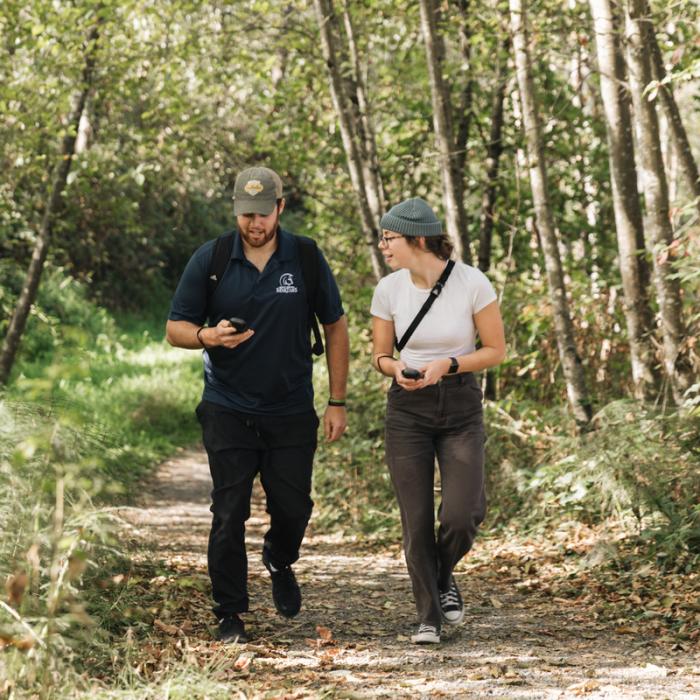A geography and environment degree offers students the opportunity to tackle complex human and environmental problems with a skill set that emphasizes a combination of knowledge-building, informed problem solving and much more.
As a student in the Geography and Environment Department (GENV), you will examine some of the most significant issues facing our planet and its inhabitants, including climate change, species extinction, habitat fragmentation, urbanization, poverty, and development.
Our GENV programs combine the strengths of a variety of disciplines across two faculties: the Faculty of Social Science and Humanities (FHSS) and the Faculty of Natural and Applied Sciences (FNAS). These combined strengths provide you with a holistic understanding of issues that cut across a variety of fields, opening up a wide range of employment opportunities. Our campus’s close proximity to freshwater, mountain, saltwater, and island habitats, as well as urban, rural and agricultural areas means that you will gain a wealth of hands-on experience in environmental stewardship and management and community development practices. Our Geographic Information Systems (GIS) lab and expertise provides up-to-date skills training in GIS. You will learn from professors with extensive expertise in diverse fields such as ecological restoration, sustainable agriculture, marine biology, landscape ecology, chemical ecology, urban and regional planning, resource management, physical and human geography, and geomatics. Also, the faculty and staff engaged in running the GENV programs provide leadership in the local community and more globally in their scholarship and in more practical ways as they approach the task of serving humanity and creation stewardship.
Related Certificates
Related Programs
Program Info
Meet the Faculty
Meet some of our world class faculty and staff inspiring great minds and changing the world.



Careers in Geography & Environment
A degree in Geography or Environmental Studies offers a wide range of career opportunities for students. A sample of these careers is listed below.
- Atmospheric Data Technician
- City Planner
- Climatologist/Meteorologist
- Consultant for Environmental & Geospatial Issues
- Ecologist
- Environmental Lawyer
- Environmental Scientist
- Field Technician
- GIS Specialist
- Land Surveyor
- Policy Analyst
- Resource Management Specialist
- Spatial Data Analyst
- Veterinarian/Veterinary Technician





